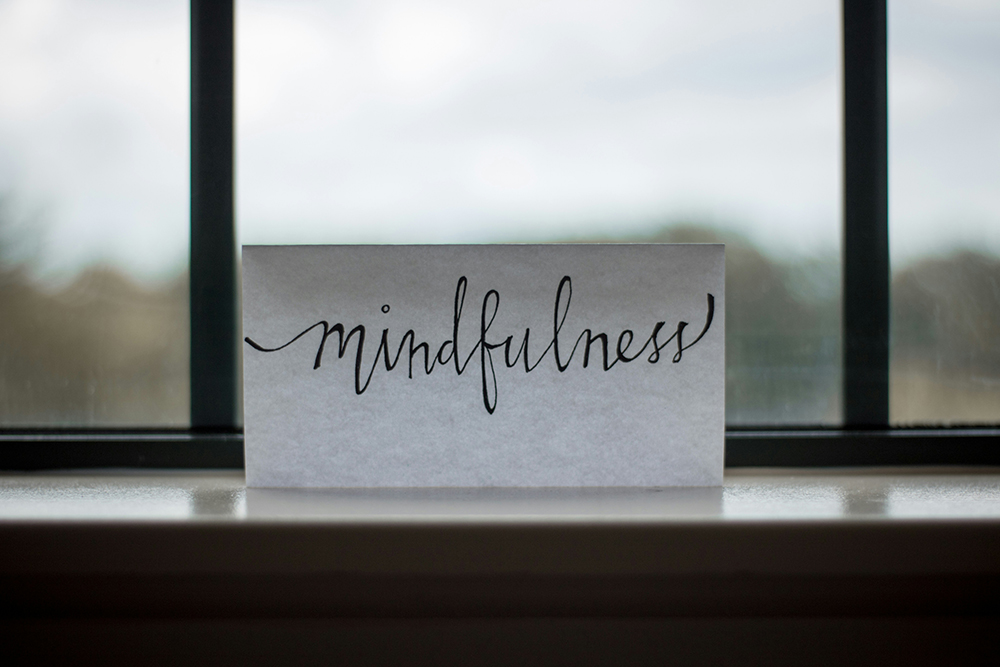
(Unsplash/Lesly Juarez)
As a child, it was usual to see my mother cook food with firewood. Practically every two days, I used to see a woman with only skin and bones on her body who carried a huge bundle of firewood on her head and walked toward the city markets to sell. When that woman came to our door, either my dad or mom would ask me to buy that bundle of wood without bargaining for the price. After paying her the amount, dad would ask me to give her a cup of tea with lots of sugar and a rice roti (handbread) prepared on a banana leaf and baked on firewood. That woman would always eat one-fourth of it and wrap the remaining three-fourths in her saree, and go away.
Out of curiosity, I would ask my father: "Why did you ask me to put a lot of sugar in that small cup of tea?" Dad would answer: "This woman has walked for 10 kilometers with that heavy bundle of wood. You can see with your eyes that she has only skin and bones on her body. With that little sugary tea and a piece of roti, she will have the energy to go back home walking. She will give those pieces of handbread to her kids so that she can save some money for the other needs of her family."
Advertisement
This lesson from my father and mother taught me what life is about — the deeper spirituality of caring for the anawim — the poor of Yahweh. Itinerant monk, Swami Vivekananda, enunciated an axiom, "Daridra Narayan," espousing that service to the poor is equivalent in importance and piety to service to God. He says, "To the hungry, religion comes in the form of bread."
While on my walk, I saw an insect on a leaf of a local almond tree. The insect perfectly matched the leaf, and I exclaimed "So, you are what you eat. So am I!"
To create harmony in one's body, one does not need to become vegetarian, giving up meat and chicken. While going through my yoga notes, I became interested in paying attention to what yoga philosophy says about the human body. It is essentially made up of three forms: the physical, the astral and the causal. In the interior, these three forms are five sheaths: body mass, the breath, the mental health, the sound intelligence and the bliss of pure conscience.
After the International Day of Peace, Sept. 21, I began reflecting on the theme: "End Racism. Build Peace." In India, there is a tornado of hate speech and brutal violence spewed toward ethnic minorities. Our minds are constantly fed on xenophobia, racism, violent misogyny, antisemitism, intolerance and anti-Muslim hatred around the world, growing in alarming trends.
All over the world, there are shadows of unfathomable catastrophes — governments cutting down the expenses on social sectors like education, health and gas, heralding a different type of pandemic resulting in limitations and additional reduction in the economy. The poor, marginalized people at the lowest rung of society are heavily impacted, adding intense distress to their daily lives. They are fed on hopelessness.
People around the globe, especially women and children, have been traumatized by violence. This trauma is on the rise because those responsible for the violence are not brought to justice.

A leaf insect is pictured in Pakke Tiger Reserve in northeast India. (Wikimedia Commons/Nandini Velho)
The society I live in is peaceful, but gradually, disbelief in basic goodness among people and peaceful living with each other is disappearing. We are constantly fed on the fear that paralyzes peaceful and harmonious living.
I realized my diet is not only the food I eat, but it is what I watch, what I listen to, what I read, the people I hang out with, and the things I subject my mind and soul to. My diet should make me mindful of the things I put into my body, emotionally, spiritually and physically.
Our minds and bodies are constantly fed on political violence and diffidence to fight for justice. People are muted from voicing out with fear of unjust imprisonment, leading to diminishing individual abilities and willingness to engage in political activities with essential morals.
Children are under the tremendous stress of hatred created by political trends using my religion vs. your religion. The dream of a peaceful world for the children of our children should motivate us to feed them with holistic perspectives and an outlook of oneness.
Jesus was what his mother fed him with her revolutionary Magnificat, which challenged the powers that be.
Through his "Quit India" movement in 1942, Gandhi fed conscious leaders to free the oppressed, and that freedom can be achieved through faith, non-violence, truthfulness and fasting. He said, "Exercise of faith will be the safest where there is a clear determination summarily to reject all that is contrary to truth and love."
Maybe the catastrophic signs of the times are giving us food for thought by paying attention to the food that leads to communal harmony and following the Indigenous wisdom of living in interdependent cosmic connectedness.
Narrating brave stories of those who fought against injustices and freed people from cruelty will raise informed citizens who will be kindhearted and truthful, and there will be no gateways for lies, anger, ego and hatred. This will keep future generations away from the tempting lights.
Feeding the next generations on the importance of incorporating the basics of politics will help them prepare their minds to fight with courage for justice, peace and equality. Politics is not rallies or giving speeches, but knowing about unsung champions of freedom, knowing one's rights and duties, and proud tales of one's own country. Feeding them to stand tall during situations when people may pull them down, demotivate them, or make them feel like a loser.
Mothers, fathers and elders are the feeders of the next generation. They have a crucial role to play in a child's upbringing. Let us be aware of what we feed our children, sanely and responsibly.







